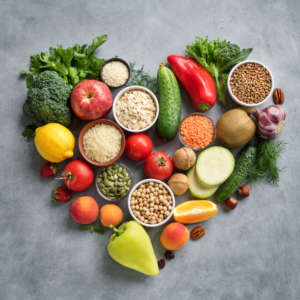Food sustainability
In a world where food waste is a growing concern, it’s crucial to delve deeper into innovative solutions that can effectively address this issue.
One answer lies in the utilisation of frozen meals. Specifically focusing on healthy ready meals as a means to combat food waste while simultaneously promoting sustainability.
This approach offers a multifaceted strategy that can revolutionise how we think about food production, consumption, and waste reduction.
At Hey Fresto, we take pride in crafting sustainable dishes that save you time and delight your taste buds.
Sustainable eating
Sustainable eating is a dietary approach that aims to reduce the negative impact of food production and consumption on the environment, society, and personal health. This involves making thoughtful choices about the foods we eat, where they come from, and how they are produced.
We should focus on reducing carbon emissions, conserving natural resources, promoting ethical treatment of animals, and supporting local and regenerative agricultural practices.
Sustainable eating encourages a balance between nutritional needs and environmental responsibility, recognising the interconnectedness of food systems with broader ecological and social concerns.
The growing issue of food waste
Food waste is a global problem of staggering proportions. According to the Food and Agriculture Organization (FAO), a specialised agency of the United Nations, about one-third of the world’s food production is lost or wasted every year. This equates to approximately 1.3 billion metric tons of food, worth nearly $1 trillion. Such wastage is not only ethically and morally concerning but also environmentally destructive.
The United Kingdom discards roughly 9.5 million tonnes of food annually, encompassing food waste generated throughout the entire food supply chain – production, processing, distribution, retail, and households.
What is sustainable food?
Sustainable food encompasses production, distribution, and consumption practices prioritising environmental, social, and ethical considerations. It involves sourcing and growing food to minimise harm to the planet, such as reducing greenhouse gas emissions, conserving water and soil resources, and protecting biodiversity.
Sustainable food also promotes equitable treatment of farmers and workers throughout the supply chain, ensuring fair wages and safe working conditions. Ultimately, sustainable food choices seek to strike a harmonious balance between nourishing our bodies, supporting local communities, and safeguarding the future of our planet for generations to come.
How can we eat more sustainably?
Eating more sustainably is a multifaceted endeavour that requires conscious choices in our diet and food consumption habits. One effective way to promote sustainability in our diets is by embracing healthy ready meals.
These meals are often designed with portion control and nutritional balance in mind, reducing food waste and preventing overconsumption. Moreover, they can utilise locally sourced, seasonal ingredients, minimising the carbon footprint associated with food transportation.
Choosing plant-based or low-impact protein options in these meals can also significantly reduce greenhouse gas emissions compared to meat-heavy alternatives. Additionally, investing in reusable containers for these meals can help reduce single-use plastic waste.
By making informed choices and incorporating nutritious, sustainable ready meals into our diets, we can take meaningful steps towards a more eco-friendly and health-conscious way of eating.
Delicious cuisine: discover the Hey Fresto! difference
No one should have to compromise taste for the sake of convenience.
Here at Hey Fresto, we take immense pride in our culinary creations that not only offer time-saving convenience but also tantalise your palate.
Our secret? Meticulously selected high-quality ingredients combined with a thoughtfully curated menu.
The role of ready meals
Ready meals can play a significant role in reducing food waste, primarily through the aspect of portion control. Here’s how
Precise portioning
Ready meals are typically pre-packaged in individual portions, which helps consumers avoid over-serving themselves. This portion control ensures that people consume what they need, reducing the likelihood of leftover food that often goes to waste.
Minimising plate waste
With ready meals, consumers have the convenience of having precisely measured servings, which leads to less uneaten food left on plates. This means fewer scraps end up in the trash.
Preventing bulk purchases
Some people tend to buy food in bulk to save money, but this can lead to excess perishable items that often spoil before they are used. Ready meals eliminate the need for bulk purchases, allowing consumers to only buy what they intend to eat.
Longer shelf life
Many ready meals have an extended shelf life, thanks to freezing or other preservation methods. This reduces the chances of food spoilage, as consumers can keep these meals in their freezers until needed.
Reducing cooking waste
Cooking from scratch often generates food waste in the form of peels, trimmings, and unused ingredients. Ready meals minimise the need for extensive cooking and reduce cooking-related food waste.
Incorporating ready meals into one’s diet can effectively address food waste, especially when consumers are mindful of portion sizes and make responsible choices when selecting these meals. By doing so, individuals can contribute to a more sustainable and eco-friendly approach to eating.
Reducing transportation emissions
Frozen meals require less frequent transportation than fresh produce since they can be stored for longer, reducing the carbon footprint associated with food distribution.
Making informed, sustainable eating choices
While frozen meals can be a sustainable solution for combating food waste, consumers must make informed choices. Opt for brands that prioritise sustainability, source their ingredients responsibly, and use eco-friendly packaging. Additionally, read labels carefully to choose meals with lower sodium, sugar, and artificial additives.
Fighting food waste with frozen meals, especially healthy ready meals, is a step in the right direction towards a more sustainable future.
These convenient and nutritious options can play a crucial role in curbing the global food waste crisis by reducing spoilage, utilising surplus produce, and minimising portion waste. However, it’s essential to be mindful of your choices and support brands committed to both your health and the planet’s well-being.
Together, we can take steps to ensure that delicious and sustainable meals are readily available while making a positive impact on our environment.
Looking for healthy frozen meals? Take a look at range.

